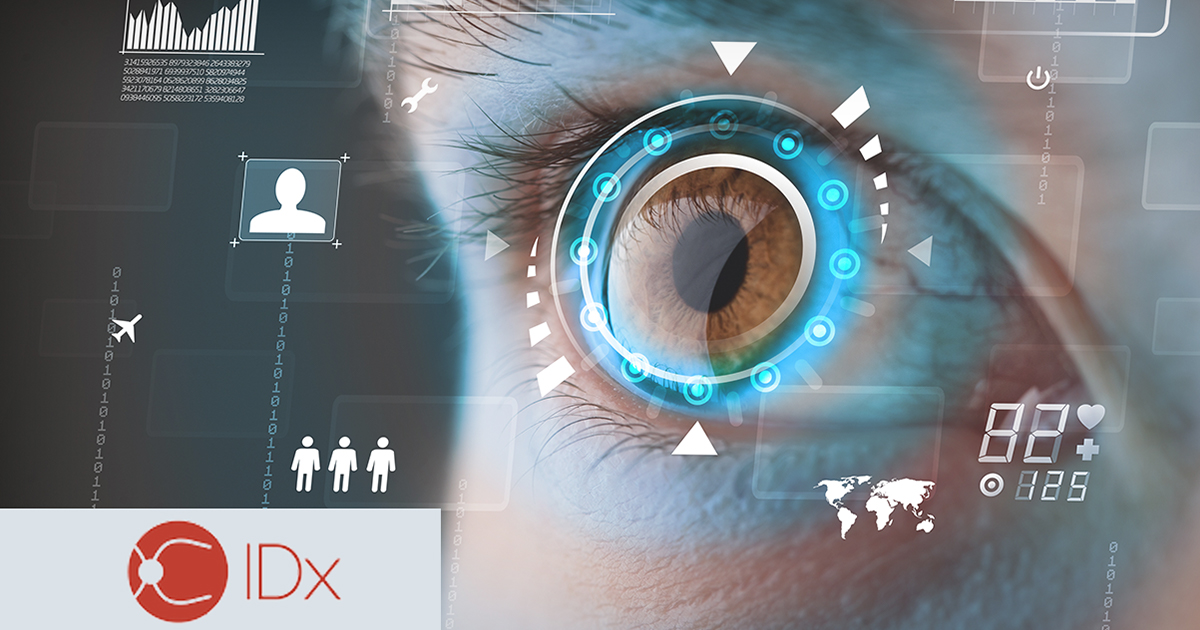AI in Ophthalmology Takes Steps Forward

A couple of artificial intelligence platforms in ophthalmology have taken significant steps forward in the past few weeks, one on this side of the Atlantic, the other using Google’s DeepMind in the UK. Here’s a quick look at where these endeavors stand.
IDx Files FDA De Novo Submission
IDx, a privately held AI diagnostics company founded by retina specialist Michael Abramoff, MD, at the University of Iowa, has filed its De Novo submission to the Food and Drug Administration for IDx-DR, an AI-based system for the autonomous detection of diabetic retinopathy.
The FDA has already granted IDx-DR breakthrough device designation. With FDA clearance, IDx-DR could become the first-of-its-kind autonomous, AI-based diagnostic system in medicine.
“The FDA’s designation of IDx-DR as a ‘breakthrough device’ confirms what we have believed for a long time,” says Dr. Abramoff, who also serves as company president. “The health-care system desperately needs a more efficient and cost-effective way to detect diabetic retinopathy. Too many patients go blind needlessly because they aren’t diagnosed in time.”
IDx-DR is designed for use during routine office visits with the goal of making early disease detection more accessible and affordable for patients.
IDx-DR’s proposed indications would enable providers to detect more-than-mild diabetic retinopathy (mtmDR) in adults with diabetes who have not been previously diagnosed with diabetic retinopathy. The IDx-DR system, which analyzes images of the retina for signs of disease, provides instructions for follow-up care based on the level of disease detected.
IDx also has algorithms in development for the detection of macular degeneration, glaucoma, Alzheimer’s disease, cardiovascular disease, and stroke risk. The company has a strategic partnership with IBM Watson Health to distribute its products in Europe.
Moorfields-DeepMind Team Submits Data
Meanwhile, at Moorfields Eye Hospital in London, the team working on an AI platform that uses Google DeepMind, has submitted its research to a clinical journal with hopes that the technology could enter clinical trials in a few years, according to a report in The Telegraph. This platform analyzes retinal scans to detect glaucoma, age-related macular degeneration, and diabetic retinopathy.
DeepMind analyzes data from thousands of retinal scans that physicians had already flagged for signs of retinal disease. The scans were used to train an AI algorithm to recognize the signs of eye disease more quickly than physicians can. The idea, according to The Telegraph, is to take up some of the repetitive work of practitioners in the UK National Health Service and ease their workloads.
“[Artificial intelligence] needs to be implemented and evaluated I would say as rigorously as a new pharmaceutical medical device so you have evidence that then allows you to scale up across a health system,” states Dominic King, DeepMind’s clinical lead.
For questions regarding this article, or other articles published on ois.net, please contact Richard Mark Kirkner: rich@healthegy.com
